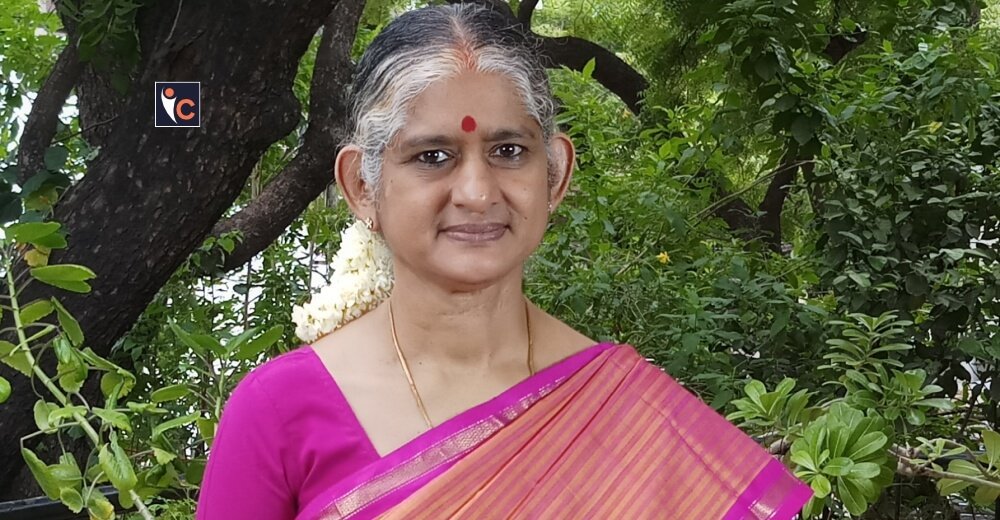The future of Indian healthcare is set for remarkable change, driven by innovative leaders like Neha Lal. As the General Manager of Adani Healthcare, Neha’s vision and dedication have made her a key influencer in the industry. Her passion for improving healthcare standards has earned her numerous awards and recognition in top publications. Known for her strategic planning and quality improvement skills, Neha is also a certified NABH counsellor and assessor, ensuring high standards in patient care and hospital operations.
Let’s discover Neha Lal’s insights on tackling operational challenges, balancing business with patient care, and her vision for the future of Indian healthcare in the full interview below!
Can you tell us about your journey in healthcare management and what led you to your current role as Healthcare Management Professional?
My journey in healthcare management spans over 23 years, during which I’ve held various leadership positions in renowned healthcare institutions. My career began with roles at SAL Hospital and Sterling Hospitals, where I developed a strong foundation in hospital operations and management.
As my experience grew, I took on more challenging roles at institutions like Shalby Hospitals and Sankara Eyecare Institutions, further honing my skills in strategic planning and quality improvement. A significant part of my career was spent with the Adani Group and GCS Medical College, Hospital & Research Centre (Zydus), where I had the opportunity to work on large-scale healthcare projects and contribute to the development of medical education.
My commitment to the field has been recognized with several awards, including the Hospital Administrator of the Year in 2021, the Women Leadership Award in Healthcare in 2018, Most Prominent Healthcare Management Leader of the year 2022, Ahmedabad by Business Mint under Nation-wide Healthcare Awards 2022. I’ve also been featured in industry publications as one of the “Top Influential & Inspiring Women Leaders in Healthcare,” featured in Medgate Today Magazine under “Top 50 Strategist in Healthcare” – to follow in 2021 and also covered in 100 under 40 by Fox Story India, 2023 issue.
As a certified NABH counsellor and assessor, how do you leverage this expertise in your current position to enhance healthcare quality and standards?
Throughout my journey, I’ve been passionate about improving healthcare quality and standards. This led me to become a NABH Assessor for QCI, India, and a Technical Committee member and Assessor for QAI. I’ve conducted over 50 NABH assessments and 10 QAI assessments across India, which has given me a comprehensive understanding of healthcare standards and best practices.
This combination of assessment experience and practical application allows me to drive meaningful improvements in healthcare quality and standards, ultimately contributing to better patient outcomes and organizational excellence.
What are some of the key challenges you’ve encountered in hospital operations management, and how have you addressed them?
My approach has always been to combine data-driven decision-making with a strong focus on people and processes, ensuring that solutions are both effective and sustainable. I’ve encountered several key challenges in hospital operations management such as Resource Optimization, Technology Integration, Patient Satisfaction, Talent Management, Crisis Management: Challenge: Preparing for and managing unexpected crises (e.g., the COVID-19 pandemic), Financial Sustainability etc. and addressed them with balanced approach by having informed decision-making keeping all stakeholders in loop. For me, leadership was much as participative and hence, unlearn, learn and re-learn newer perspectives from the team, which keeps me going.
How do you balance the business aspects of healthcare management with the need for quality patient care and service delivery?
Balancing the business aspects of healthcare management with quality patient care and service delivery has been a central focus throughout my career. My approach to this critical balance includes, Strategic Resource Allocation, Lean Management Principles, Transparent Communication, Diversification of Revenue Streams, Ethical Decision-Making, Technology Integration and Patient-Centric Strategy etc. A good blend of all of these always helped in balancing business and service delivery.
In your experience, what role does HR management play in creating an efficient and effective healthcare organization?
HR management plays a crucial and multifaceted role in creating an efficient and effective healthcare organization. Considering my contribution as expertise in Strategic HR, I can confidently say that HR is a cornerstone of organizational success in healthcare. Effective HR management is not just a support function but a strategic partner in creating efficient and effective healthcare organizations. I’ve had an opportunity to manage 1500 resources and a strategic approach made it even more fructifying for large organizations. It touches every aspect of the organization, from talent management to organizational culture, and plays a pivotal role in achieving both operational excellence and high-quality patient care.
As a strategic professional, how do you approach establishing new business ventures and leading operations in the healthcare sector?
I aim to create healthcare ventures that are not only at the forefront of medical care but also highly efficient, patient-centric, and future-ready. My ongoing PhD research in AI in Healthcare, combined with my extensive experience in hospital management, allows me to bridge the gap between technological innovation and practical healthcare delivery, ensuring that we harness the full potential of digital transformation in healthcare. Special focus on partnerships with health-tech startups and research institutions specializing in AI (Artificial Intelligence), ML (Machine Learnings), AR, and VR applications in healthcare. Digital Hospital has always been a passion for me, it gives me more pleasure when Healthcare services are so apt when available virtually and satisfying both.
Looking ahead, what advancements or changes do you foresee in the Indian healthcare industry?
Digital Health Revolution, AI and ML Integration, Personalized Medicine, IoT in healthcare, Virtual & Augmented Realty, Focus on Preventive Healthcare, Robotics, Focus on Mental Health, Sustainable and Green Hospitals, Focus on Elderly Care, Healthcare Analytics & block-chain are few advancements, which will significantly transform the Indian healthcare landscape, making it more accessible, efficient, and patient-centric. However, they will also bring challenges in terms of data privacy, technology adoption, and equitable access. As healthcare leaders, we need to be proactive in embracing these changes while ensuring that the core values of compassionate care and ethical practice remain at the forefront of our healthcare delivery. Hospitals will now need more engineers working alongside doctors to have medicine and technology both benefiting patient’s treatment and care.
Read More: Click Here





